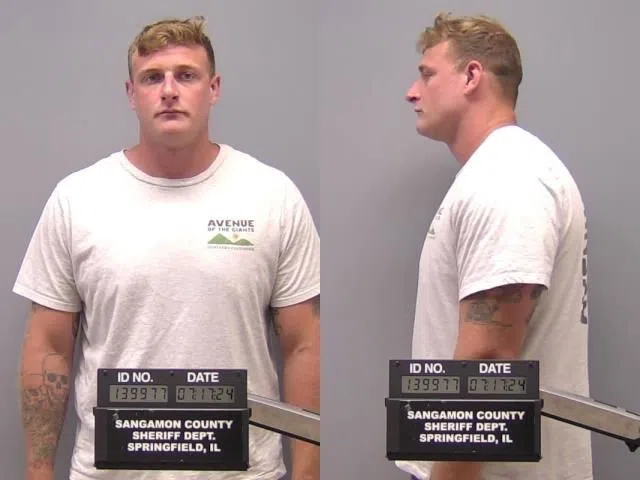PEORIA, Ill. (WMBD) — Day 2 of the Sean Grayson murder trial had no jury present, but had a ton of legalese and case law thrown about as the two sides tried to settle up several pending motions before opening statements on Wednesday.
After spending seven hours or so on Monday to pick 12 jurors and three alternates, the two sides spent 51 minutes on Tuesday morning delving into prior U.S. Supreme Court cases, when pleadings should be filed and wording of “justified” and “reasonable.”
Both sides wanted “guardrails” for testimony by the experts on what words they can and can’t use.
The trial, which could last for up to two weeks, deals with the July, 6, 2024, deadly shooting of Sonya Massey by former Sangamon County Sheriff’s deputy Sean Grayson who was charged with murder for her death.
Prosecutors on Tuesday dropped two lesser counts of aggravated battery and official misconduct before trial. It’s not uncommon for prosecutors to drop lesser counts as they might want to avoid a compromise verdict or a conviction on a lesser count.
It is not at issue that Grayson shot Massey. That’s captured on body camera footage. Rather, the issue is going to be whether he was justified in his actions and likely where he followed departmental protocols regarding deadly force.
Grayson was charged in Sangamon County, but Circuit Judge Ryan Cadagin moved the case out of that county and to Peoria County due to “intense pretrial publicity.”
At issue was how the dueling experts differed on the use of force. It matters, as Team Grayson appears to argue, that his actions were consistent with his training as a sheriff’s deputy.
Defense attorney Dan Fultz argued that his client should not be held to a standard that is a “national best practices” if Grayson didn’t know about it and relied on his training in the sheriff’s office.
John Milhiser, the Sangamon County state’s attorney, said he’d work with defense attorneys to make sure the testimony was confined to the matters in this case and not what’s on the national level.
In the end, the judge was able to get both sides to agree to not use words such as “justified,” “unlawful” or “lawful” as they could be loaded terms for jurors.
One of the issues was how “timely” the motions by prosecutors were. It matters because both sides are supposed to be prepared with all the information before trial, if possible.
Defense attorney Mark Wykoff argued prosecutors had at least 90 days to file the objections and their motions, filed fairly recently, were about a month after a deadline set by Cadagin.
The judge, however, said no, saying he viewed the state’s objection to some of the testimony by defense experts as “an early objection as opposed to a late motion in limine.”
The state’s attorney argued the testimony given by some of the defense experts would not apply, as it wasn’t allowed under the law.
In the end, both sides agreed to hash out things before and during the trial and to possibly question some experts before their testimony to end the final disagreements over their credentials and whether they are qualified to discuss some matters.
Opening statements are set to begin Wednesday at 9 a.m.
WMBD TV can be reached at News@WJBC.com.





